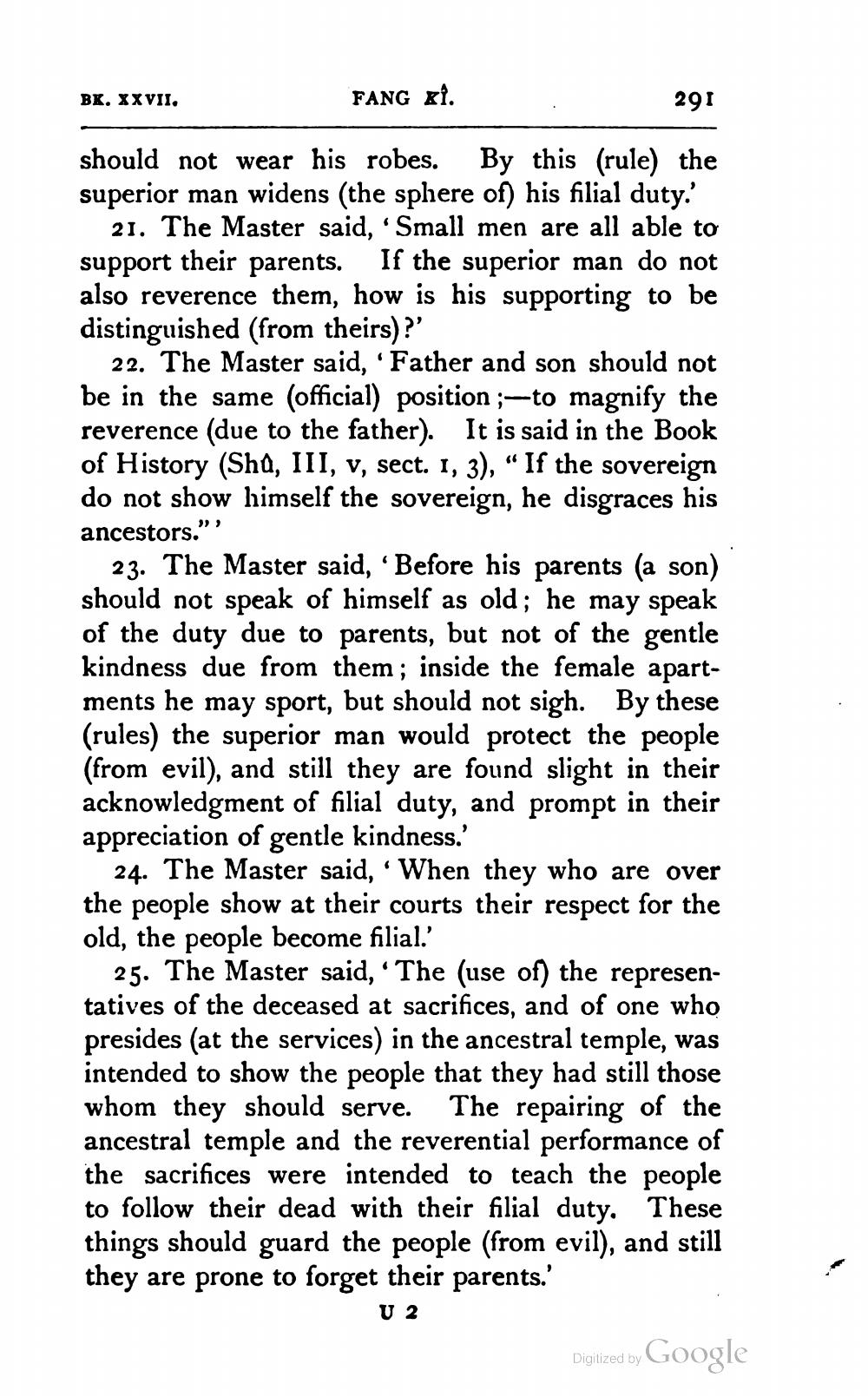________________
BK. XXVII.
FANG KI.
291
should not wear his robes. By this (rule) the superior man widens (the sphere of) his filial duty.'
21. The Master said, 'Small men are all able to support their parents. If the superior man do not also reverence them, how is his supporting to be distinguished (from theirs)?'
22. The Master said, 'Father and son should not be in the same (official) position ;-to magnify the reverence (due to the father). It is said in the Book of History (Shd, III, v, sect. 1, 3), “ If the sovereign do not show himself the sovereign, he disgraces his ancestors."
23. The Master said, “Before his parents (a son) should not speak of himself as old; he may speak of the duty due to parents, but not of the gentle kindness due from them; inside the female apartments he may sport, but should not sigh. By these (rules) the superior man would protect the people (from evil), and still they are found slight in their acknowledgment of filial duty, and prompt in their appreciation of gentle kindness.
24. The Master said, 'When they who are over the people show at their courts their respect for the old, the people become filial.'
25. The Master said, “The (use of the representatives of the deceased at sacrifices, and of one who presides (at the services) in the ancestral temple, was intended to show the people that they had still those whom they should serve. The repairing of the ancestral temple and the reverential performance of the sacrifices were intended to teach the people to follow their dead with their filial duty. These things should guard the people (from evil), and still they are prone to forget their parents.'
U 2
Digitized by Google




